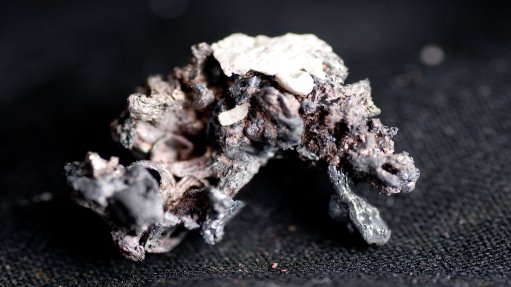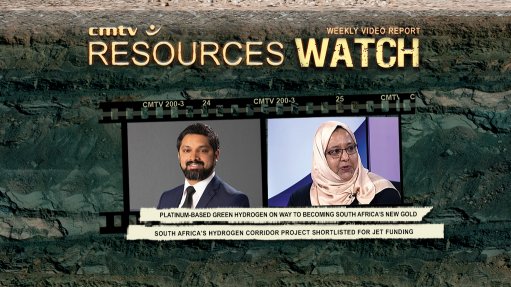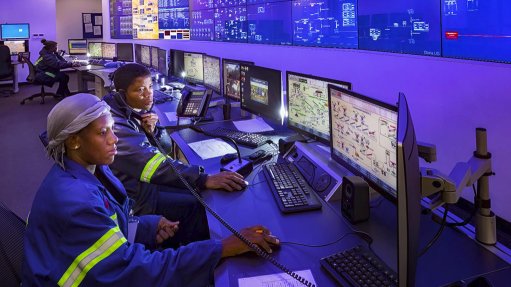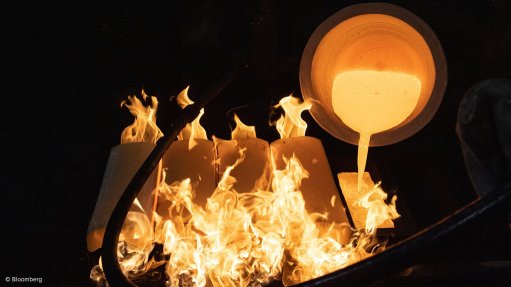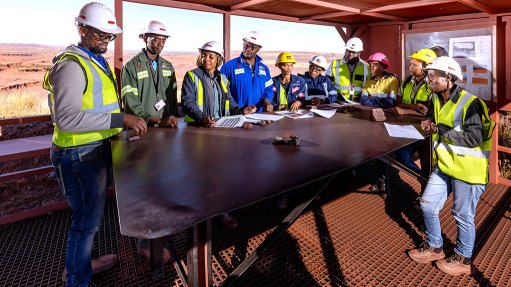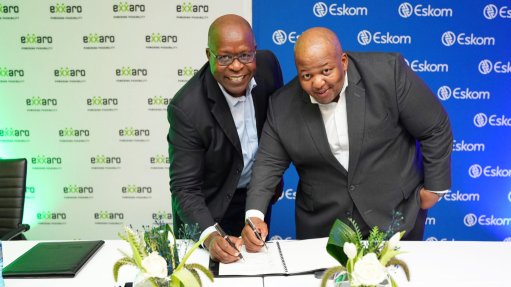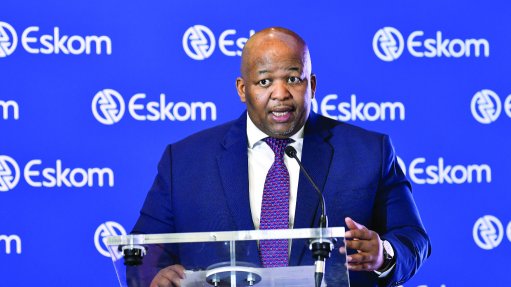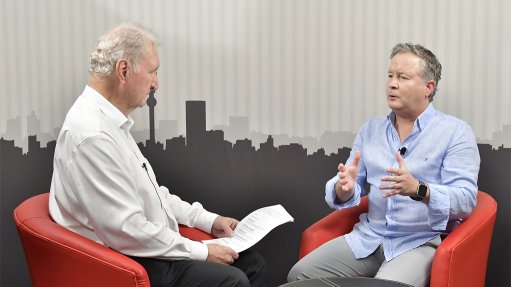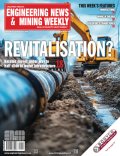On-The-Air (03/11/2017)
Every Friday morning, SAfm’s AMLive’s radio anchor Sakina Kamwendo speaks to Martin Creamer, publishing editor of Engineering News and Mining Weekly. Reported here is this Friday’s At the Coalface transcript:
Kamwendo: One of South Africa’s largest and foremost black-controlled companies is spending R20-billion in Limpopo and Mpumalanga on coal-mining projects.
Creamer: That company is Exxaro Resources and it is lead by Mxolisi Mgojo. We know that he is one of the most important people in mining at the moment, because he is also the president of the Chamber of Mines (CoM) of South Africa. We can see that he has got confidence in at least a 40-year horizon in coal.
He is putting R20-billion into coal projects, R10-billion going into the Waterberg area and R10-billion into Mpumalanga. The important thing about this is that South Africa is going to need coal whether we like it or not. We know that coal is not the flavor of the month, it is blamed for climate change and all sorts of things.
We need it over a period as there is a transition towards renewable energy and Mxolisi Mgojo is more aware of that then anybody, because he is already in renewable energy, so he has seen both ends of the scale. In the meantime he knows that there is a good proposition to put R20-billion into coal mining projects as we go forward. He has just struck a nice deal with Transnet, which means his logisitics are in place to get his coal from the Waterberg are in Limpopo right through Mpumalanga and also to Richards Bay Coal Terminal for exports.
That is another thing South Africa needs, it needs that export revenue and he is stepping up his exports out of the country. An important piece of activity there by the black-led Exxaro Resources, which also looking to helping the country through his position as president of CoM and calling for a collective national vision to be struck so that we can do much more to the economy to boost it through mining.
Kamwendo: Africa is streaking ahead of South Africa in the race to build the world’s most automated mines.
Creamer: We can see mining in South Africa is down in the dumps, but in other parts of South Africa they are streaking ahead. When you get deep into places like the Democratic Republic of Congo (DRC), there are two big things you have got to watch out for. You have got to have your energy and efficiency particularly with the new gold mine in DRC at Kibali.
They knew that they had to depend on reliable energy that was low-cost. They immediately set up their own hydropower sources. They are going to have three of them soon supplying electricity into that mine, but then that electricity needs to drive automation and mechanisation. Now, Kibali is the most advanced and modern gold mine in Africa. It has not only mechanised very well and using Congolese people where there is huge training set ups to make sure that they have got the skills, but also removing people entirely from the base of that mine.
There will be no people there, but there will be a lot of activity with the ore passes and multiple loaders putting product onto conveyor belts and crushing it and getting it out of the mine without any people involved. This also has massive safety aspects and we can see even in that mine, although it is mechanise that there have been rockfalls that have destoyed some of the equipment. If that was not being done by equipment the people would be destroyed.
So it is an important activity and we are saying that South Africa is really falling behind the likes of Kibali. Also, their mine at Loulo in Mali is way ahead on the mechanised front.
Kamwendo: Unchallenged illegal mining has brought the once-flourishing Cooke Gold Mine in Randfontein to a standstill, resulting in the loss of nearly 7 000 jobs.
Creamer: We just look at the comparison between Beatrix West in the Free State where there were no illegal strikes and no illegal mining, we can see the jobs have been preserved there even though you can see the owner Sibanye Stillwater is going to keep a tight leash on it. But, those 1 600 jobs have been preserved through actual discussion between the workers and between the company.
They have decided that they are going to keep this on if you continue to lose over a three month period we will look at this again. If you don’t lose in any three months we will keep this going. Now, come fast forward to Cooke where there has been terrible illegal mining, there has been illegal strikes.
Why did the illegal strikes take place, because people where taking food down to the illegal miners and when they stopped the food going down the people went on an illegal strike. But, what happened is that nearly 460 illegal workers came out of the mine, because they had to because there was no more food. If they had not been there, R700-million will be in the hands of the owners of those mines. That could have meant preservation of 7 000 jobs.
I was the son of a miner, I know when your dad comes home and he says their could be retrenchments, we used to shiver and shake around the supper table. My mom used to be really worried. So can you imagine now 7 000 people losing their jobs, that is 70 000 people with a knock-on effect.
It might have been avoided had their not been illegal mining and that people had voiced their opinion against that including the unions who should have said if our members take food for illegal activity, we should surely expel those members. That is what they should think of doing in the future because as you can see the repercussions are huge.
Kamwendo: Thanks very much. Martin Creamer is publishing editor of Engineering News and Mining Weekly.
Comments
Press Office
Announcements
What's On
Subscribe to improve your user experience...
Option 1 (equivalent of R125 a month):
Receive a weekly copy of Creamer Media's Engineering News & Mining Weekly magazine
(print copy for those in South Africa and e-magazine for those outside of South Africa)
Receive daily email newsletters
Access to full search results
Access archive of magazine back copies
Access to Projects in Progress
Access to ONE Research Report of your choice in PDF format
Option 2 (equivalent of R375 a month):
All benefits from Option 1
PLUS
Access to Creamer Media's Research Channel Africa for ALL Research Reports, in PDF format, on various industrial and mining sectors
including Electricity; Water; Energy Transition; Hydrogen; Roads, Rail and Ports; Coal; Gold; Platinum; Battery Metals; etc.
Already a subscriber?
Forgotten your password?
Receive weekly copy of Creamer Media's Engineering News & Mining Weekly magazine (print copy for those in South Africa and e-magazine for those outside of South Africa)
➕
Recieve daily email newsletters
➕
Access to full search results
➕
Access archive of magazine back copies
➕
Access to Projects in Progress
➕
Access to ONE Research Report of your choice in PDF format
RESEARCH CHANNEL AFRICA
R4500 (equivalent of R375 a month)
SUBSCRIBEAll benefits from Option 1
➕
Access to Creamer Media's Research Channel Africa for ALL Research Reports on various industrial and mining sectors, in PDF format, including on:
Electricity
➕
Water
➕
Energy Transition
➕
Hydrogen
➕
Roads, Rail and Ports
➕
Coal
➕
Gold
➕
Platinum
➕
Battery Metals
➕
etc.
Receive all benefits from Option 1 or Option 2 delivered to numerous people at your company
➕
Multiple User names and Passwords for simultaneous log-ins
➕
Intranet integration access to all in your organisation









